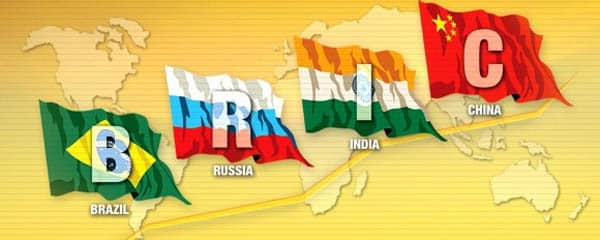
The election of Narendra Modi and his BJP party in India has marked the arrival of another nationalist –or, rather, an even more nationalist, as they have all been so-, at the head of a BRIC (Brazil, Russia, India and China; let’s leave South Africa out for the time being and competing with Nigeria). The group, or network, whose name was coined in 2001 by the economist Jim O’Neill, has become a geopolitical reality and is being populated in recent times by such leaders. Such situation can complicate global governance, particularly when the US is not involved in those movements. Modi, though, is still unknown in many ways and can surprise: one of his first steps has been to meet with his Pakistani counterpart. Xi Jinping in China and Vladimir Putin in Russia are more nationalistic than their predecessors (and in the latter case more than his previous incarnation as president). In addition, from outside the group, in an already post-industrial economy, Japan’s Shinzo Abe is also nationalistic, complicating the Asian board. And from a second but no less important position, there is a growing nationalism on the part of Erdogan in Turkey.
Should we expect new changes or new emphases of the foreign policy of these leaders and countries separately or together? Except Putin, none has signaled expansionist intentions. China either, even though she is trying to impose herself in the sea that bears her name, and is developing a major naval capability. It should be noted that this new BRIC nationalism is accompanied in many cases by the attempts to boost the economies of these countries, with various formulas. For it is the economy, long before nationalism, which guides these leaders – perhaps Putin is the exception in this context- and their voters when they can exercise their rights, as is the case of India, for its unparalleled democratic reach because of its demography.
“I believe a strong economy is the driver of an effective foreign policy,” Modi has been saying since long, adding that “we have to put our house in order for the world to be attracted to us.” This is not to say that the economy will prevail in his foreign policy, but almost.
However, they will reinforce some current trends. More spending and military capabilities to begin with. But also, in spite of interdependence, more sovereignism and a more multipolar world view, rather than multilateral (as the US), let alone unipolar, which is bad news for the pole that is essentially multilateral, namely the European Union. Although the European extreme right has expressed a peculiar and dangerous admiration for Putin, as a counterweight to the United States. In any case, this sovereignism will reinforce the trend towards a world that has ceased to produce new international law of importance.
They are not anti-European. Simply, they see the EU, as it is, weak, although they trust that it will get over its problems. They are more anti western, because they fear a western dominion in imposing universal economic norms through the TTIP (Transatlantic Partnership of Trade and Investments) among the new possible tools. Paradoxically, it is making some of these pro-sovereignty countries rethink their position, in favor of a greater commercial multilateralism. And although they reject the unipolar world that has marked the last ages, not all of them – some indeed- are necessarily anti-American. Modi in principle sees the US as an essential partner or even ally, and behind that there are good relations between India and Israel that perhaps will appear more in the open.
Putin is in full tension with Washington and seeks a way out in a strengthening of its relations with the rest of the BRICS and especially with China. Beijing has responded constructively, as reflected in the significant agreement with Gazprom during the visit of the Russian president to Beijing, a boost in times of western sanctions against Russia. And watch for the end of the petrodollar domain in these exchange. Other agreements are expected in terms of arms sales with the latest military technology like the SU-35 aircraft that Russia is prepared to sell to China. Meanwhile, Turkey last year chose to acquire Chinese anti-aircraft systems rather than from the US.
Russia has been temporarily expelled from the G -8, that becomes again the G -7, against which the BRICS rise. But they have lost confidence in the G -20 and not because they disagree with the West but because they disagree among themselves. In fact, they don’t agree about their worldview. More about what they do not want – Western domination- that what they want. They don’t share a vision of a grand strategy, not least because in some areas they compete against each other.
It does not mean that they don’t try to give some shape to the cooperation among the BRICS, or in other forums such as the Shanghai Cooperation Organization , or the renewed the Non-Aligned Movement (120 countries that met last week in Algiers) and in the international institutions that they find dominated by the West like the International Monetary Fund or the World Bank. In fact, at their next summit in July in Brazil, the BRICS should finally launch its own development bank with $ 100,000 million a


